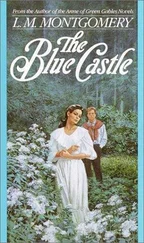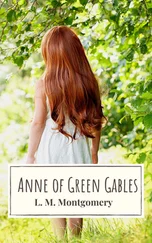Lucy Maud Montgomery
The Alpine Path:
The Story of My Career
When the Editor of Everywoman's World asked me to write "The Story of My Career," I smiled with a little touch of incredulous amusement. My career? Had I a career? Was not - should not - a "career" be something splendid, wonderful, spectacular at the very least, something varied and exciting? Could my long, uphill struggle, through many quiet, uneventful years, be termed a "career"? It had never occurred to me to call it so; and, on first thought, it did not seem to me that there was much to be said about that same long, monotonous struggle. But it appeared to be a whim of the aforesaid editor that I should say what little there was to be said; and in those same long years I acquired the habit of accommodating myself to the whims of editors to such an inveterate degree that I have not yet been able to shake it off. So I shall cheerfully tell my tame story. If it does nothing else, it may serve to encourage some other toiler who is struggling along in the weary pathway I once followed to success.
Many years ago, when I was still a child, I clipped from a current magazine a bit of verse, entitled "To the Fringed Gentian," and pasted it on the corner of the little portfolio on which I wrote my letters and school essays. Every time I opened the portfolio I read one of those verses over; it was the key-note of my every aim and ambition:
"Then whisper, blossom, in thy sleep
How I may upward climb
The Alpine path, so hard, so steep,
That leads to heights sublime;
How I may reach that far-off goal
Of true and honoured fame,
And write upon its shining scroll
A woman's humble name."
It is indeed a "hard and steep" path; and if any word I can write will assist or encourage another pilgrim along that path, that word I gladly and willingly write.
I was born in the little village of Clifton, Prince Edward Island. "Old Prince Edward Island" is a good place in which to be born - a good place in which to spend a childhood. I can think of none better. We Prince Edward Islanders are a loyal race. In our secret soul we believe that there is no place like the little Province that gave us birth. We may suspect that it isn't quite perfect, any more than any other spot on this planet, but you will not catch us admitting it. And how furiously we hate any one who does say it! The only way to inveigle a Prince Edward Islander into saying anything in dispraise of his beloved Province is to praise it extravagantly to him. Then, in order to deprecate the wrath of the gods and veil decently his own bursting pride, he will, perhaps, be induced to state that it has one or two drawbacks - mere spots on the sun. But his hearer must not commit the unpardonable sin of agreeing with him!
Prince Edward Island, however, is really a beautiful Province - the most beautiful place in America, I believe. Elsewhere are more lavish landscapes and grander scenery; but for chaste, restful loveliness it is unsurpassed. "Compassed by the inviolate sea," it floats on the waves of the blue gulf, a green seclusion and "haunt of ancient peace."
Much of the beauty of the Island is due to the vivid colour contrasts - the rich red of the winding roads, the brilliant emerald of the uplands and meadows, the glowing sapphire of the encircling sea. It is the sea which makes Prince Edward Island in more senses than the geographical. You cannot get away from the sea down there. Save for a few places in the interior, it is ever visible somewhere, if only in a tiny blue gap between distant hills, or a turquoise gleam through the dark boughs of spruce fringing an estuary. Great is our love for it; its tang gets into our blood: its siren call rings ever in our ears; and no matter where we wander in lands afar, the murmur of its waves ever summons us back in our dreams to the homeland. For few things am I more thankful than for the fact that I was born and bred beside that blue St. Lawrence Gulf.
And yet we cannot define the charm of Prince Edward Island in terms of land or sea. It is too elusive - too subtle. Sometimes I have thought it was the touch of austerity in an Island landscape that gives it its peculiar charm. And whence comes that austerity? Is it in the dark dappling of spruce and fir? Is it in the glimpses of sea and river? Is it in the bracing tang of the salt air? Or does it go deeper still, down to the very soul of the land? For lands have personalities just as well as human beings; and to know that personality you must live in the land and companion it, and draw sustenance of body and spirit from it; so only can you really know a land and be known of it.
My father was Hugh John Montgomery; my mother was Clara Woolner Macneill. So I come of Scotch ancestry, with a dash of English from several "grands" and "greats." There were many traditions and tales on both sides of the family, to which, as a child, I listened with delight while my elders talked them over around winter firesides. The romance of them was in my blood; I thrilled to the lure of adventure which had led my forefathers westward from the Old Land - a land which I always heard referred to as "Home," by men and women whose parents were Canadian born and bred.
Hugh Montgomery came to Canada from Scotland. He sailed on a vessel bound for Quebec; but the fates and a woman's will took a hand in the thing. His wife was desperately seasick all the way across the Atlantic - and a voyage over the Atlantic was no five days' run then. Off the north shore of Prince Edward Island, then a wild, wooded land, with settlements few and far between, the Captain hove-to in order to replenish his supply of water. He sent a boat ashore, and he told poor Mrs. Montgomery that she might go in it for a little change. Mrs. Montgomery did go in it; and when she felt that blessed dry land under her feet once more, she told her husband that she meant to stay there. Never again would she set foot in any vessel. Expostulation, entreaty, argument, all availed nothing. There the poor lady was resolved to stay, and there, perforce, her husband had to stay with her. So the Montgomerys came to Prince Edward Island.
Their son Donald, my great-grandfather, was the hero of another romance of those early days. I have used this tale in my book, The Story Girl. The Nancy and Betty Sherman of the story told there were Nancy and Betsy Penman, daughters of a United Empire Loyalist who came from the States at the close of the war of Independence. George Penman had been a paymaster in the British Army; having forfeited all his property, he was very poor, but the beauty of the Penman girls, especially Nancy, was so great that they had no lack of suitors from far and near. The Donald Fraser of The Story Girl was Donald Montgomery, and Neil Campbell was David Murray, of Bedeque. The only embroidery I permitted myself in the telling of the tale was to give Donald a horse and cutter. In reality, what he had was a half-broken steer, hitched to a rude, old wood-sled, and it was with this romantic equipage that he hied him over to Richmond Bay to propose to Nancy!
My grandfather, Senator Montgomery, was the son of Donald and Nancy, and inherited his stately presence and handsome face from his mother. He married his first cousin, Annie Murray, of Bedeque, the daughter of David and Betsy. So that Nancy and Betsy were both my great-grandmothers. If Betsy were alive to-day, I have no doubt, she would be an ardent suffragette. The most advanced feminist could hardly spurn old conventions more effectually than she did when she proposed to David. I may add that I was always told that she and David were the happiest couple in the world.
It was from my mother's family - the Macneills - that I inherited my knack of writing and my literary tastes. John Macneill had come to Prince Edward Island in 1775; his family belonged to Argyleshire and had been adherents of the unfortunate Stuarts. Consequently, young Macneill found that a change of climate would probably be beneficial. Hector Macneill, a minor Scottish poet, was a cousin of his. He was the author of several beautiful and well-known lyrics, among them "Saw ye my wee thing, saw ye my ain thing," "I lo'e ne'er a laddie but one," and "Come under my plaidie" - the latter often and erroneously attributed to Burns.
Читать дальше





